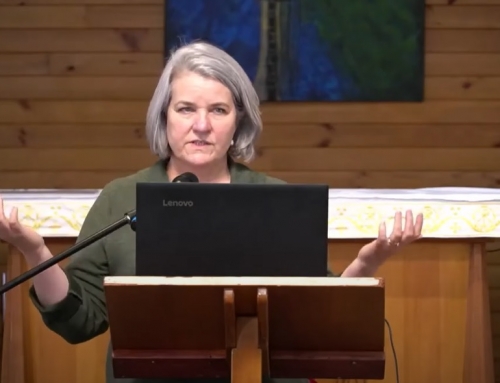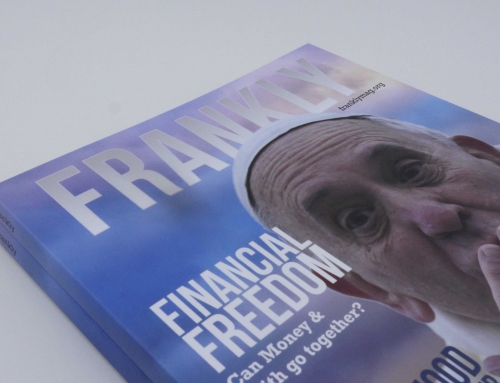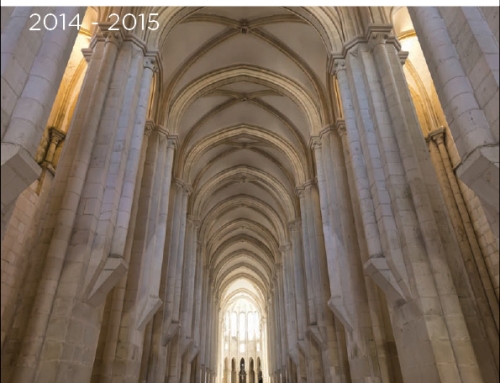Rituals are recognised as tremendously important to children and are the cornerstone of family relationships. They help build positive memories and healthy habits. Rituals play a similar role in couple relationships but are all too often neglected.
The Auto-Pilot Marriage
The natural flow of marriage relationships in contemporary life is towards ‘auto-pilot’. With our crammed schedules, kids to care for, and the ever-present television, our attentiveness to our couple relationship erodes over time, leading us towards less connection, less spark, and less intimacy. This is not being dysfunctional. This is the normal sequence of modern marriage.
During courtship the relationship is central in our awareness and the rest of our lives are the in background. When we get married, and particularly after we have children, this reverses. Other things – the children, our work, our hobbies, our community involvement – take centre stage and our marriage moves to the background and only gets our attention when there’s something wrong.
But it needn’t be this way. We are creatures of habit, and the right kind of habits can serve a couple well. Successful couples intentionally cultivate enriching rituals and so avoid the barrenness of an auto-pilot marriage.
Couple Rituals: what makes them work?
Rituals are social interactions that work to build relationship when they are repeated, coordinated, and significant.
- Repeated: recurring periodically – everyday, weekly or annually, etc. If it only happened once, no matter how meaningful, it’s not actually a ritual until it recurs periodically.
- Coordinated: both spouses know what is expected of them – when to show up, who initiates, when it finishes, what’s included, what’s excluded, etc. Rituals are characterised by a recognisable beginning known as the ‘transition to ritual space’. This beginning is marked by a clear signal such as lighting a candle or relocating to another room. The ‘enactment phase’ follows and is the main event of the ritual. And finally an ‘exit stage’ marks the end of the ritual in a definitive way. Ambiguity about when a ritual should start or end, who is responsible, what is allowed and what isn’t, opens the door to tension and misunderstanding. When the purpose of and transitions in and out of a ritual are clear, there is no need to negotiate. Negotiating every time is inconsistent with ritual, because it’s not coordinated enough and there is too much opportunity for conflict, which undermines the purpose of a couple ritual.
- Significant: it has positive emotional meaning to both parties. A ritual is different to a routine because it has significance; a routine is something that is both repeated and coordinated, but is low on emotional meaning (eg, eating dinner together while one watches television and the other reads the paper). On the other hand, a ritual has deep emotional meaning and serves to enhance the intimacy and connection of the couple.
Essential Daily Rituals
Just like our essential daily vitamins, simple rituals will keep our marriages healthy and vibrant. Here are five essential daily rituals for couples to consider:
Greeting Ritual: How a couple reunites at the end of the day sets the tone for the rest of the evening. Establish a ritual that is simple and effective in making the reconnection with each other, such as ten second kiss or hug. This ensures that the couple transitions from the independence of the day’s activities to coupleness.
Talk ritual: A married couple with children is unlikely to have time for uninterrupted personal talk unless they ritualise it. It helps to have a regular transition to ritual space that is calibrated to some event set time (eg, as soon as kids are in bed, or straight after dinner). To maintain meaning, keep the conversation personal and intimate. Avoid logistics and problem solving: the goal is to connect at a personal level. Also resist conflict items – this makes the ritual hard work and one or both is likely to start avoiding it. Finally, the couple should agree on an exit point (eg, after fifteen minutes, or when we finish the coffee), as open-ended rituals are hard to sustain. Our ‘talk ritual’ is linked to a twenty minute evening walk. Following a set route around our neighbourhood, we find conversation flows easily and we also get some much need exercise as well as privacy from our teenagers.
Bedroom Ritual. Negotiating when, if and how lovemaking is to take place, is one of those awkward conversations that most couples bumble. It’s often loaded with tension and fear of rejection. A bedroom ritual can help facilitate the transition to lovemaking by having clear signals that both husband and wife recognise as the precursors to lovemaking. Spontaneity and variety are important to bedroom ritual, but too much spontaneity (ie, total lack of planning or routine) often means less and less lovemaking as busy lives crowd out precious couple time.
Prayer/Reflection Rituals. Regular reflection is the bedrock of a healthy spirituality. A routine of personal prayer helps us reflect on our lives and grow from our experiences, making us ultimately better spouses. Couples who pray together enjoy a particularly deep intimacy but most couples find this quite confronting. A well-defined ritual such as a set prayer format or regular time is an invaluable assistance in facilitating this valuable shared activity.
Gestures that say “I love you”. There are a zillion variations on this theme. We like to share our appreciation of each other every day; it focuses our attention on the other’s goodness and fosters our optimism and gratitude. Here are some ideas from our network of couples:
- Some couples write a daily love letters or share their strongest feeling of the day with each other.
- One husband will randomly buy a rose and put it somewhere in the house for his wife to unexpectedly discover.
- Another lights candles for breakfast (they start work early and it’s still dark!).
- Still another leaves post-it notes in surprise places like the teapot or on her handbag.
Special Occasion Rituals
Special occasion rituals provide an opportunity to connect in a more intensive way or in greater variety. Here are some ideas from other couples:
The regular date. Some couples have one every week, or every month. Others partake in them less routinely. Date nights needn’t be an extravagant affair; there are many ways couples can create the spirit of a date at home or through a simple outing such as a picnic. Date nights work because they ritualise romance and play in the marriage, providing couples with a reliable focal point for their shared life to which they can look forward to.
The annual retreat to celebrate a wedding anniversary is popular and effective as a ritual. Some couples make their anniversary or New Year’s Eve the marker for an annual review of their relationship, reflecting on their high and low points together and planning for the coming year. Other annual occasions that are good opportunities for couple rituals include events like Christmas, St Valentine’s Day, Easter, Mothers’ and Fathers’ Day.
A shared recreational activity like reading a book to each other or ballroom dancing can be very effective. Some couples enjoy exercising together and have a regular time that they do this. These shared activities routinize ‘play-time’ together and promote bonding.
Reconciliation Ritual. All couples argue, disappoint or hurt each other, usually quite regularly. A reconciliation ritual is a powerful way to restore their unity and heal the wounds. Without it, couples tend to drift towards escalating conflict or deathly indifference. The healthiest relationships will be those where both spouses participate in the initiation of such a ritual, each acknowledging their responsibility. For us, our reconciliation ritual begins with one of us asking the other for a hug. It breaks the ice and as we hold each other, the tension dissipates and we gain a new perspective: the issue is never more important than our unity! There are many ways a reconciliation ritual may conclude, but lovemaking is certainly an important one as it physically expresses the restoration of the couple’s emotional communion. A good reconciliation ritual will help a couple become even stronger in their intimacy and commitment after an argument than they were before it occurred.
Effective Rituals
Almost anything can be turned into a ritual of connection if the focus is on the relationship. Some couples check in with each other by phone a couple of times a day. It’s only a ritual, though, if both of them know it’s a connection time. Working in the garden or running errands can be a ritual if we consciously seek it as a way of bonding with each other. For example, we established a ‘Date Claimer’ ritual in our very busy young children years: when there was an errand to run like picking up some milk, refilling the car, or picking up a child from sport, we’d claim it as ‘date’ and use the few minutes of time alone in the car to just enjoy each other’s company. It allowed us to playfully cope with a very packed family schedule and still feel like a couple rather than two parents cohabitating in the same house.
An effective ritual also needs both spouses to be committed to it. If one spouse is always the one reminding the other or being the one to organise it, resentment and conflict will likely intrude. And resentment is a sure way to undermine the benefit of a ritual in building intimacy and connection. The most enduring rituals evolve over time and respond the couple’s changing needs and circumstances, so that both husband and wife can be invested in the ritual because it is serving them equally.
An Intentional Marriage
Like most things in life, a marriage will tend towards disorder and decay unless there is active engagement in creating positive interactions and memories. Similarly, our couple rituals decline with time unless we actively choose to make them part of our marriage. And, like anything of value in life, it does take attention and effort. Apathy and indifference are the enemies of rituals, eroding them as a river wears at the shoreline. On the other hand, commitment to our rituals provides the glue we need to stick together during the times of stress and the seasons of despair.
Francine & Byron Pirola are the Directors of the Parish & Marriage Resource Centre.www.thePMRC.org
Reference: Bill Doherty, Keynote Address – SmartMarriages Conference 2000.





